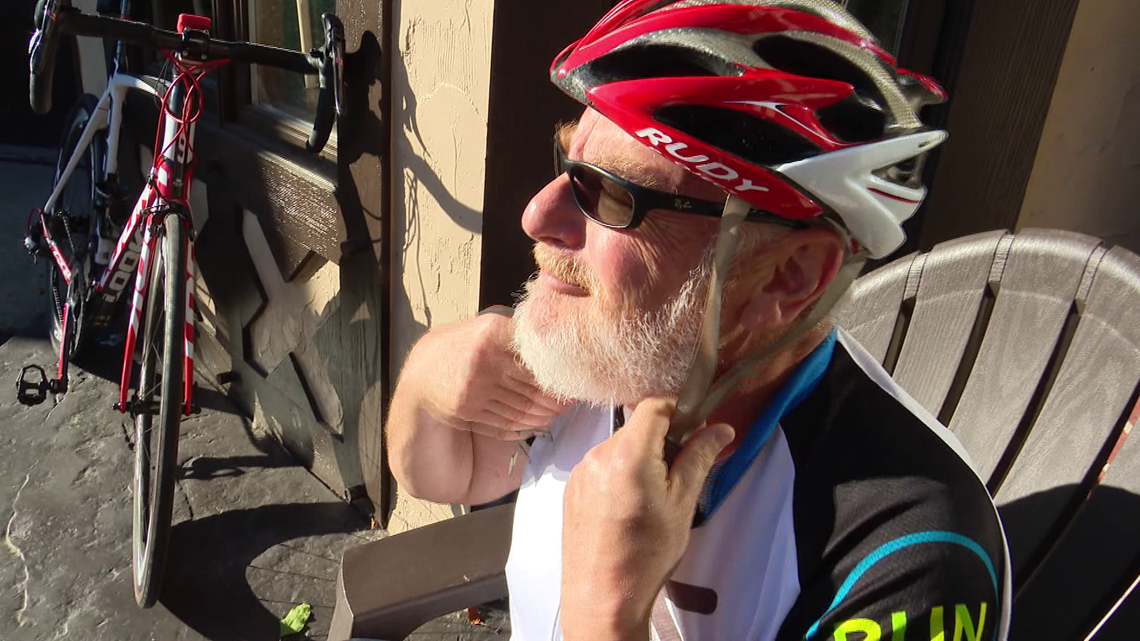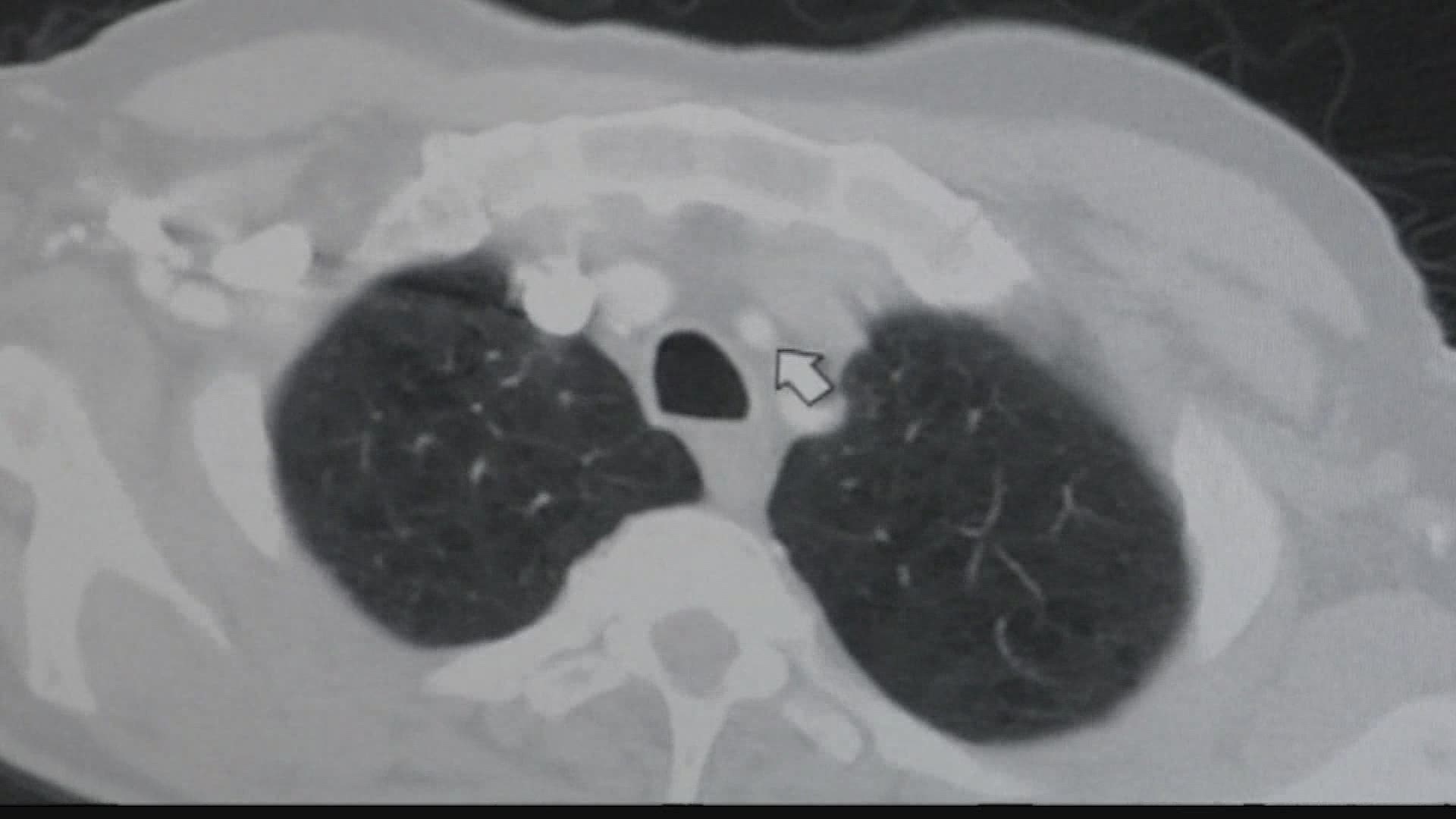INDIANAPOLIS — (WTHR) — Doug Patterson never dreamed he'd had lung cancer. He doesn't smoke and is an active cyclist logging up to 100 miles per week. He's 62, has asthma, and regularly checks in with his physician, who ordered a low-dose CT scan to check Patterson's lungs. That screening detected a nodule and led to the discovery of Patterson's lung cancer.
It was the "last thing in the world I expected" Patterson said.


"We've caught it at a very early stage. He's had the lung cancer removed and he's doing very well. We've had people that have never smoked before and we're finding that increasing, especially in women, the number of people that never smoked and have lung cancer, and it's caught up later in the stages," Ascension St. Vincent Pulmonologist Dr. Michael Busk said.
Lung cancer is the number one cancer killer of Americans and late detection is part of the problem.
In select patient populations, the low-dose CT scan can help find issues early and improve outcomes.
Though you can get lung cancer from environmental exposure and other factors, the most common denominator among lung cancer patients is a smoking history like Rusty McKay's. He started smoking when he was 16 and smoked Lucky Strikes steadily for the next 35 years.
"I smoked at work. I smoked at home. I smoked in class, I went, I smoked in college, I smoked in graduate school. My professor smoked. It was just part of what we did" McKay said.
Because of his smoking history, McKay was considered high risk. Though he was symptom-free, his doctor ordered a low-dose CT scan and that screening detected a nodule in his lung.
"I think I got a wake-up call," McKay said.
Follow up visits lead to surgery, diagnosis of stage one lung cancer and removal of one-third of McKay's lung.
"The key to lung cancer screening is to catch it early. When it is more likable that we can cure it," Busk said.
For McKay, the timely screening means more time with his 16 grandchildren and more time to invest in his passion for mentoring to business students at Butler University.
"I won't be I wouldn't be vertical I wouldn't be alive today if we hadn't taken an aggressive look at this potential for lung cancer," McKay said.
For Patterson, the diagnosis means many more miles ahead.
"My recovery was surprisingly easy I was back on the bicycle in six weeks," Patterson said.
And wherever he goes, Patterson now shares the message: "If it could happen to me, it could happen to you."
"I tell everyone I know: friends, business associates, someone I have a chance to talk to. Don't hesitate, go get it done" Patterson said.
Patients over the age of 55 are encouraged to talk with their doctor to determine if they are a candidate for the screening.
For at-risk patients, the low-dose CT scan is covered by insurance and without it, it costs $99 courtesy Ascension St. Vincent and Check Up 13.

